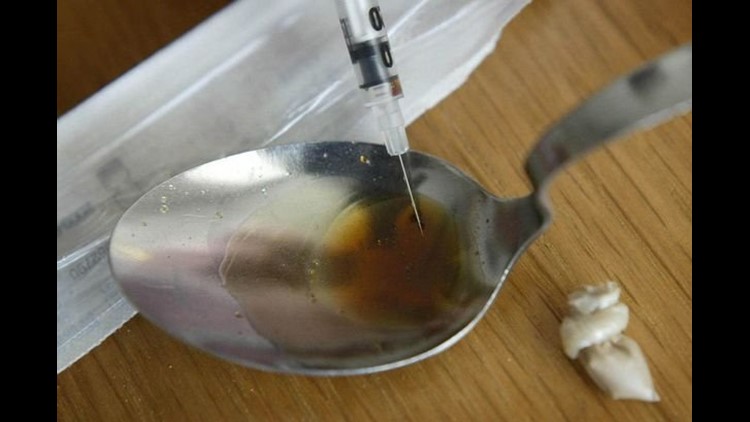The largest organization of physicians in the state, The Pennsylvania Medical Society, announced it’s endorsing pilot programs for supervised injection sites in the Commonwealth to study their effectiveness. The endorsement reflects growing support for sites to help treat victims in the country’s ongoing opioid crisis.
“The opioid epidemic is the biggest public health crisis we’ve faced as a state in decades,” said PAMED President Lawrence John, MD. “We owe it to those suffering from the disease of addiction to carefully examine proposals that may reduce harm and buy time for them to get into treatment.”
A supervised injection site is a legally sanctioned facility where someone can consume illegal and deadly drugs they got off the street, such as heroin, while a medical professional watches over them. Those doctors or nurses can revive the user if they overdose, and access treatment. Additionally, users have access to clean, sterilized needles, which would allow them to avoid infectious diseases like Hepatitis C and even HIV.
The endorsement from PAMED comes after a Federal judge ruled in October a proposed supervised injection site in Philadelphia would not violate federal law. Now, the non-profit organization behind it, Safehouse, is preparing to open it in order to help people suffering from substance use disorder and opioid use disorder.
Pennsylvania has one of the worst ongoing opioid crises in the United States. It’s particularly bad in Philadelphia, where more than 1,110 people died from opioid-related overdoses in 2018, according to data from the Philadelphia Department of Health. That’s down slightly from 2017, but the overall rate has skyrocketed in the last 5 years. Use for other drugs like cocaine and methamphetamine is also rising. Overdose-related deaths associated with those drugs more than doubled between 2016 and 2017.
Safehouse is considering the Kensington neighborhood, the epicenter of Philadelphia’s drug crisis, as one possible location for a site. It’s home to one of the most active open-air heroin markets in the country.
Advocates of supervised injection sites argue victims of substance use disorder are going to use drugs regardless of the health and legal issues they could face. By monitoring the injections, medical professionals can prevent victims from dying by being ready to administer the overdose reversing drug Naloxone, if necessary. They also say the sites help police departments and health systems save money.
PAMED cited an independent analysis by Thomas Jefferson University and Main Line Health System. It concluded a safe injection site could save anywhere between 24 and 72 lives every year, while saving Philadelphia’s health systems some $74 million.
As for legal consequences, Philadelphia District Attorney Larry Krasner has already thrown his support behind the proposed supervised injection site, and said he won’t prosecute users if it opens.
Critics say the site would undermine prevention efforts, and could cause safety concerns.
When Philadelphia city officials announced plans to let Safehouse operate a supervised injection site, Pennsylvania Attorney General Josh Shapiro announced his opposition. “There is no safe way to inject heroin, fentanyl and carfentanyl.” He did not, however, take a side in the federal lawsuit to block the site. Governor Tom Wolf also said he disagrees with the idea of opening a supervised injection site.
In Harrisburg, State Sen. Anthony Hardy Williams, D-Philadelphia/Delaware County, introduced legislation to prevent supervised injection sites from opening unless it is approved by a municipality. That bill, Senate Bill 933, would require the municipality in question to hold at least three public hearings on the subject. It would also require the community to have a safety plan with local law enforcement or the Pennsylvania State Police.
“I want to continue dedicating state resources to the prevention and rehabilitation of those struggling with addiction, but it is also important that we give communities all the possible resources to deal with the drug epidemic” he said. Senate Bill 933 was referred to the State Senate Judiciary Committee last week.
Dane Scantling, DO, MPH, represents the Philadelphia County Medical Society in PAMED’s House of Delegates. He wrote the resolution that led to PAMED’s policy change after he lost a relative to an opioid overdose. “These sites are well studied and successful across the globe but have been delayed by American politics while our patients die every day.”
The idea for supervised injection sites appears popular among some politicians and law enforcement officials in other states. In July, seven state attorneys general, including those in Delaware, Virginia, Michigan, and Colorado, filed amicus briefs in the federal lawsuit to support the site in Philadelphia.
New York and San Francisco are also major cities that have proposed safe injection sites to tackle their opioid crises.
In the race for the White House, Democratic Presidential Candidates Sen. Bernie Sanders, I-Vermont, and Sen. Elizabeth Warren, D-Massachusetts, mentioned support for safe injection sites in their criminal justice reform plans.
Supervised injection sites already exist in Canada, Europe, and Australia. The city of Philadelphia released a scientific review in 2017, citing data mostly based on one location in Vancouver. The report showed opening a site in the city could save lives.
“Victims of the opioid crisis and their families have been looking to us for help while the courts look to us for guidance” Scantling said. “This is our chance to definitively give it to them and help bring safe injection sites to America.”



